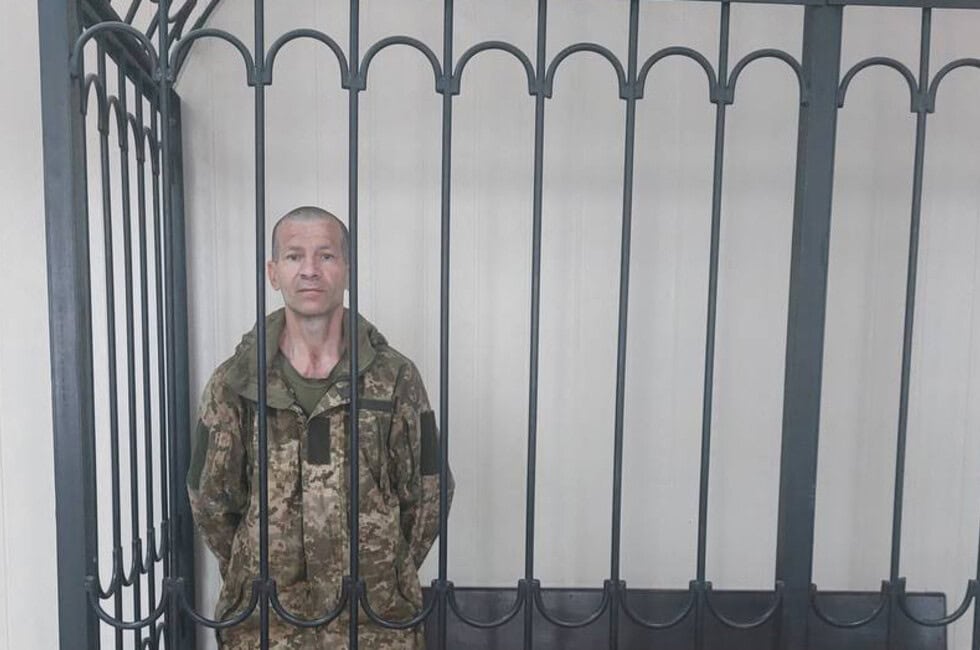

15 detained and “convicted” for political reasons in the occupied territories in the first week of September
At least seven people were detained for political reasons in the occupied territories during the first week of September.
On September 5, a propaganda platform in Luhansk reported the detention of another man, which took place in late August. The man was said to have allegedly worked “for a public association recognised as extremist in the Russian Federation” from 2019 to 2024, participating in its meetings and “regularly recruiting new members”.
Russia occupied the part of the Luhansk region where he allegedly acted in 2022. Judging by the descriptions, the man could have been a pastor or a parishioner of one of the Protestant churches persecuted in Russia.
Of the remaining seven people, five were detained in Crimea, most of them following a tip-off from the Crimean SMERSH Telegram channel, which specialises in online denunciations against those who have openly or privately expressed support for Ukraine or criticism of the Russian authorities and the war they are waging.
For example, at least three men were detained for insulting Russian President Vladimir Putin and shouting Ukrainian slogans while drunk.
One woman was detained for creating a “family group” on Viber, in which she allegedly “communicated exclusively in the “mova” (Ukrainian language. – Occupied), wished victories to the Ukrainian Armed Forces and cheered for them, insulted the President of Russia, and denied the territorial integrity of the country”.
Another detained young man in Crimea and a woman in Mariupol allegedly collected and passed on information to the Ukrainian special services about the movement and deployment of Russian troops and equipment, including air defence systems. Both face prison terms for “high treason”.
Another man is allegedly a prisoner of war and will be “tried” for “participation in a terrorist organisation”. The man is said to be from Kharkiv and had been fighting in Donetsk and Luhansk regions “as part of Ukrainian armed groups of the far right” since April 2024.
At least seven other people in the occupied territories were “sentenced” to long prison terms during the first week of September. Most of the known cases also concern residents of Crimea.
Two men were sent to prison for 16 years for “high treason”. One of them was allegedly preparing a sabotage “at a transport infrastructure facility in Crimea”, while the other was passing on information about the movement of Russian troops and equipment and storing explosives.
One woman was sent to prison for five years for allegedly passing on information to the Security Service of Ukraine about the movement and deployment of Russian troops and equipment, including ships and air defence systems.
Finally, another woman was fined for criticising “the use of the army to protect the interests of Russia and its citizens, as well as to maintain international peace and security” in a conversation with colleagues.
Also “sentenced” were three Ukrainian prisoners of war: Serhiy Rudyk, a sapper of a sniper group of Azov (18 years in a maximum security colony), Mykola Velychko, commander of a sniper unit of the Marines (25 years), and Oleksandr Liubas, a soldier of the Main Intelligence Directorate’s special unit (20 years).
It was claimed that Rudyk’s “crime” was the seizure of a car from a civilian resident of Mariupol, and Velychko’s was the murder of a civilian in Mariupol during the siege of the city by Russian troops.
According to the report, Liubas was captured in Crimea while attempting to “carry out a planned terrorist act – landing on the territory of the Black Sea Fleet of the Republic of Crimea, conducting photo and video recording of the fact of the installation of the state flag of Ukraine there and an armed attack on Russian servicemen”. The man was “tried” in the Russian city of Rostov-on-Don.